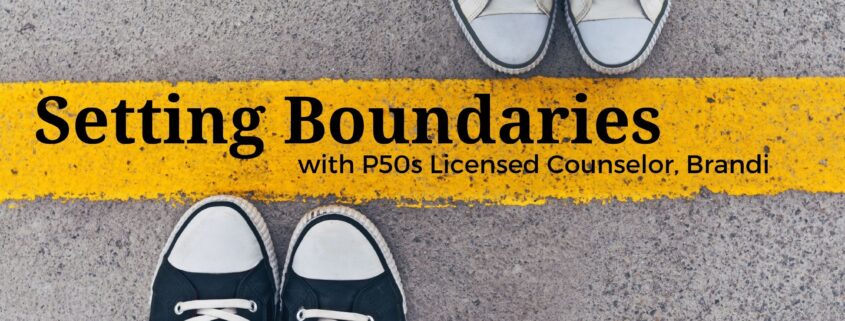Setting Self Care Boundaries
Let’s chat boundaries.
Previously we had talked about what self-care really looks like (you can check that post out here) and boundaries play a major role in how effective our self care is. These can be physical or emotional, and can range from loose to rigid lines (healthy usually falls somewhere in the middle). Putting boundaries into place is something that is done from yourself and others.
What do poor boundaries look like?
As we look at boundaries as a critical component of self-care, poor boundaries can impact all aspects of a person’s life. This might look like:
- Resentment
- Anger
- Burnout
- Stress
- Financial Burdens
- Wasted Time
- & Relationship Issues
7 ways to establish boundaries:
1. First, find your limits. Identify your physical, emotional, mental, and spiritual limits. Consider what you can tolerate and what makes you feel uncomfortable or stressed. These feelings will help identify where our limits are.
2. Tune into your feelings. Key feelings to consider are discomfort and resentment. Think of a continuum scale from 1-10, placing 6 in the higher zone. If you’re at the higher side of this continuum during an interaction or situation, start asking yourself what is causing it.
3. Be direct and assertive with what you need. Healthy boundaries don’t always require a direct and clear-cut dialogue with some people. However, this depends on communication styles, views, and personalities so ensuring a proper approach can be useful. Start practicing assertive communication in your everyday life to help increase your confidence in setting boundaries.
4. Give yourself permission to feel. We are going to fear the other person’s response. We are going to feel guilty for speaking up or saying no to someone. For those who have never sat boundaries in the past, it’s going to be uncomfortable and hard until it isn’t. Remember, you deserve to have boundaries.
5. Practice self-awareness. Boundaries are about honing your feelings and honoring them. If you notice yourself slipping and not sustaining your boundaries, ask yourself what changed, what you plan to do about the situation, and what you have control over.
6. Make yourself a priority. Self-care should be a priority and that involves giving yourself permission to put yourself first. When you start prioritizing yourself, you recognize the importance of feelings and honoring them. These feelings become important cues about our well-being and what makes us happy and unhappy. We also tend to be overall better people in our everyday roles we hold.
7. Start small. With any new skill, assertive your boundaries will take practice. Start with a small boundary that isn’t threatening to you and then increase to more challenging boundaries. Setting boundaries takes courage, practice and support.
Find which steps work best for you, or which are the best place for you to start. Remember, this is an act of self-care that can actually help fulfill what our body is trying to tell us.
If you need guidance in creating these boundaries in your life, schedule an appointment with our Licensed Counselor by calling 701.751.2974.


